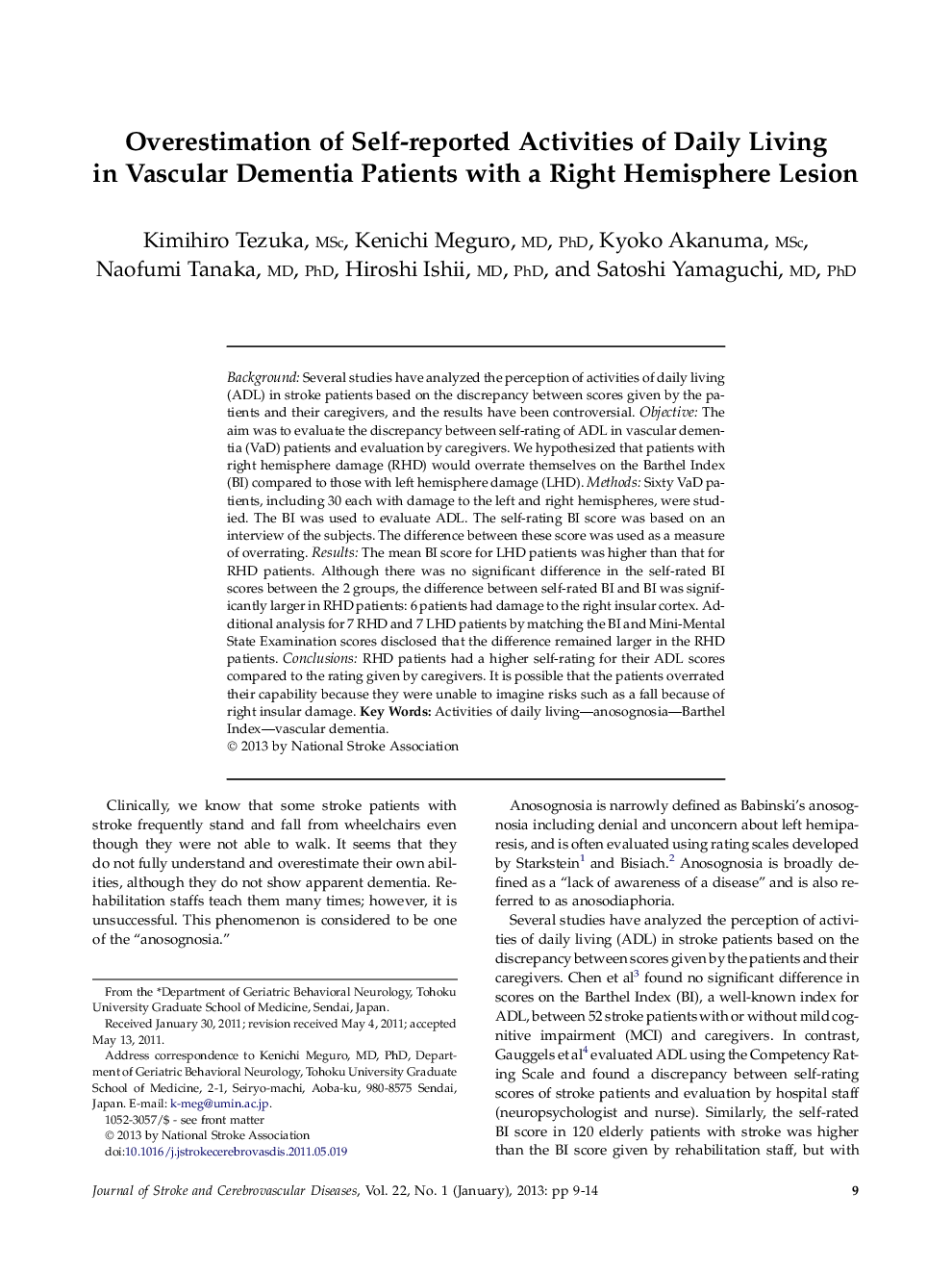| Article ID | Journal | Published Year | Pages | File Type |
|---|---|---|---|---|
| 2701997 | Journal of Stroke and Cerebrovascular Diseases | 2013 | 6 Pages |
BackgroundSeveral studies have analyzed the perception of activities of daily living (ADL) in stroke patients based on the discrepancy between scores given by the patients and their caregivers, and the results have been controversial.ObjectiveThe aim was to evaluate the discrepancy between self-rating of ADL in vascular dementia (VaD) patients and evaluation by caregivers. We hypothesized that patients with right hemisphere damage (RHD) would overrate themselves on the Barthel Index (BI) compared to those with left hemisphere damage (LHD).MethodsSixty VaD patients, including 30 each with damage to the left and right hemispheres, were studied. The BI was used to evaluate ADL. The self-rating BI score was based on an interview of the subjects. The difference between these score was used as a measure of overrating.ResultsThe mean BI score for LHD patients was higher than that for RHD patients. Although there was no significant difference in the self-rated BI scores between the 2 groups, the difference between self-rated BI and BI was significantly larger in RHD patients: 6 patients had damage to the right insular cortex. Additional analysis for 7 RHD and 7 LHD patients by matching the BI and Mini-Mental State Examination scores disclosed that the difference remained larger in the RHD patients.ConclusionsRHD patients had a higher self-rating for their ADL scores compared to the rating given by caregivers. It is possible that the patients overrated their capability because they were unable to imagine risks such as a fall because of right insular damage.
